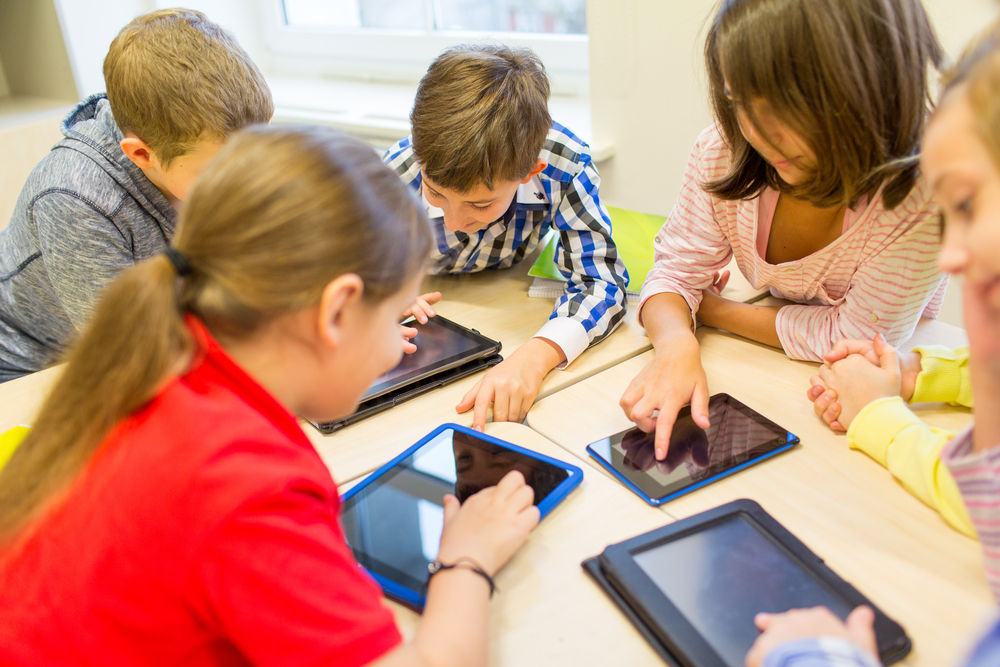
Keeping children engaged in learning both in school and at home has become a growing challenge that many households now face. Thankfully, technology is helping to fill that gap between the classroom and the living room. With mobile devices becoming so popular that nearly every age has a gadget tailored for their needs, getting programs to help them grow and learn has become easier than ever.
As technology evolves and changes so will the way that we all learn. Keeping up with all the advances and innovations can seem daunting with the speed they are presented. Learning is for all ages and many general education apps can work for children of all ages and young adults. Thankfully, with so many improvements, it is now easier than ever to stay connected with parents, students and teachers.
There are many educational apps available. Choosing the right one can seem like a daunting task, but with the right guidance it can be very simple. Looking at the reviews of the app from other consumers can be a quick guide to seeing how other parents and teachers have thought of the app. Analyses from trusted sources such as Consumer Reports are another source of reliable information about an app.
How to Find a Good App
The first step to finding the right apps for your kids is to consider each app by a variety of factors that consider who your children are. Kids who find an app difficult to use or above their grade level can be frustrated easily, making the app unproductive for them. Kids who find the app too easy are ready for the next level of play. It is important to consider what your children’s strengths and weaknesses are when selecting an app.
There are a few other factors to consider when choosing an app.
Online Security
So much of ourselves is out in cyberspace, making security of the highest importance, even more so when children are online. Some devices have online access, and a few apps might require users to go online. When using an app, how much of your data and that of your child is being requested? How much of your data is stored and for what purpose it is being used are important considerations. The good news is that keeping your children’s identity hidden without having it shared over the internet can be achieved with proper settings.
In-app Costs
Some free apps might have in-app purchases to increase functionality, provide more content or other bonuses that might include modules, clothing and accessories for digital avatars, digital stickers, and other small prizes. Some of these apps may still be very good, but with the caution to set the security preferences on your child’s account so they cannot charge linked debit or credit cards.
Some free apps might include video ads that play, periodically interrupting the flow of content, often requiring an upgrade to a premium version to stop those ads. Others might offer content that is only accessible if paid for. A few of the best apps might also have monthly subscription fees to access updated content and keep track of your child’s progress.
Proper settings on your device are vital so that your children cannot add apps linked to credit or debit cards. Kids don’t always understand that these add-ons cost money, so they make in-app purchases, potentially costing their parents hundreds or thousands of dollars.
Appropriate Content
Another factor about ads is that some may not be appropriate for children. The content in a particular app may be fine for your child’s age, but the ads supporting it may be more suitable for adults. Thankfully, both Google Play and the App Store on Apple have safeguards to help keep children safe from seeing content that would be inappropriate, but it is still important that parents preview any apps for their kids to ensure ads are kid-friendly, or better yet, not there at all.
Age-Appropriate Lessons
Besides the safety of the app, checking to see if its features and how easy it is to use are also very important considerations. The age and ability of the child are also factors as ensuring they remain engaged and having fun so that they want to continue to grow and learn. If the app is too difficult they might well become discouraged and no longer focused on learning.
![]()
Tracking Progress
Communication is important in every aspect of our lives, it should be no different when speaking with our children. Asking them how they are progressing and what they are struggling with allows you to help tailor their growth to how they best learn while also building trust between you and your child. Some apps may track your child’s progress and offer digital rewards such as stickers or enhancements for successfully completing goals.
What Apps Are Out There?
There are many apps that exist for a generalized broad learning across multiple subjects, all in one convenient place. These apps provide the foundation for later learning, can help expand what kids already know, and can give insight into new topics. Keeping them engaged in the learning process is just as important as what is being taught to them and the best apps will blend gamification and learning into one seamless whole.
Here are some of the best apps that effectively use play to help kids learn.
Khan Academy
Khan Academy is one of the most well respected apps for learning on the web. It is an entirely free resource without ads or subscription services, covering topics from math and reading to science and history. Any academic subject more than likely exists as a course on Khan Academy. Usable by nearly any age or education level, it can help fill the gaps in understanding a topic in courses designed by some of the best minds in those fields.
Khan Academy Kids is an option for those with children under the age of 4. It presents learning for reading and basic math by providing games that encourage critical thinking and problem solving and helping to promote early efficiency in spelling and grammar. It is a highly respected app by teachers and parents of young children for the skills that it teaches them.
Play & Code
Thinkrolls Play & Code gives younger children an edge in the increasingly digitized world we live in and allows them to play through complex puzzles and challenges. Also included are thousands of pre-coding concepts that allow young children to build their own adventure and puzzles that teach them the early concepts they will need to be successful.

BrainPop
BrainPop and BrainPop Jr are apps that have videos on many different topics within the field of science. BrainPop Jr is for children between kindergarten and 3rd grade while BrainPop is for those in higher elementary grades and middle school. Each video is followed by quizzes and games that help to reinforce what the video taught. While it does have a subscription for much of its content, some of its lessons can be used as a free service.
Prodigy
Prodigy is for those between first and eighth grade. While it does have a free version, the annual cost of the app is between $60 and $75 per year. A very well respected app that builds on what a child already knows rather than trying to introduce new topics, Prodigy is great for cementing understanding of already-known topics to help kids grasp them better.
Duolingo
Duolingo is an app that is built solely to teach language in a gamified format. It provides a number of languages for an English speaker to learn, from Spanish to Chinese. Being built by the community, new languages are always being added and existing languages are always being updated and tweaked for a better learning experience.
In our increasingly interconnected world the ability to speak another language will help ensure more prospects open later in life. Knowing another language helps build a deeper connection to the person they are interacting with. Duolingo is free with ads between lessons and hearts if a lesson is failed, but they do offer a subscription service that removes the ads.

Collaborating on Learning
There are many more apps that exist that are tailored for specific topics and learning styles for kids and teens. Learning is a lifelong process, so providing children an early lead and the confidence to tackle harder problems are skills that they will carry with them their entire lives. When children are confident in their abilities with the skills to properly communicate their needs, that mastery extends beyond home and the classroom into every aspect of their lives.

 Español
Español